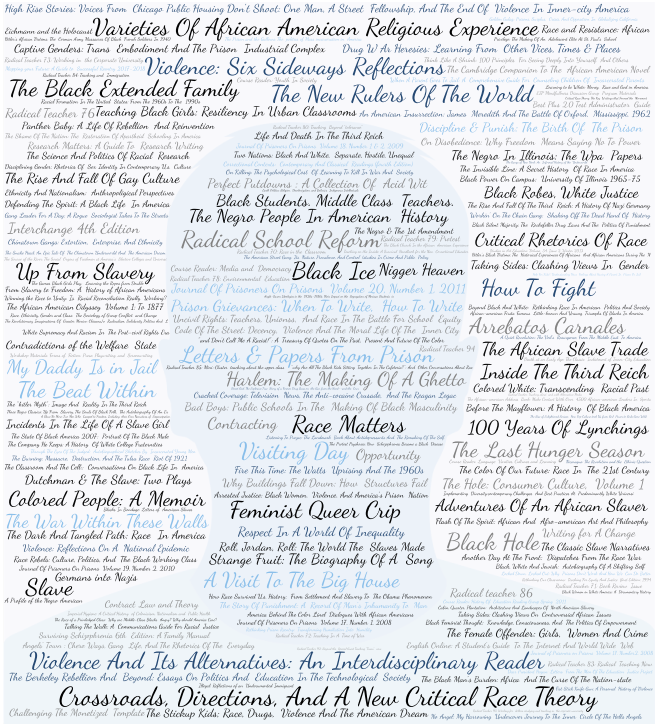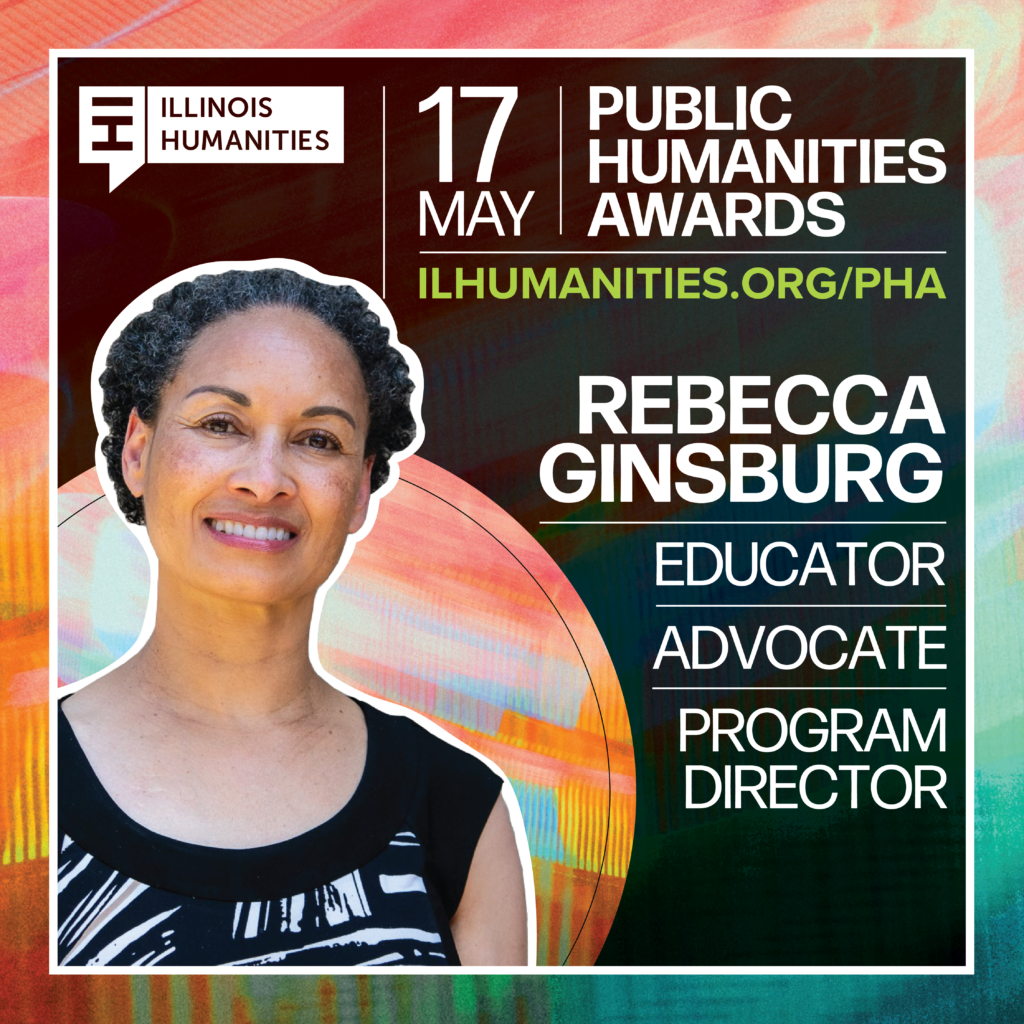Censorship and moves to challenge, or ban, books have dominated the news in recent months. 2023 Public Humanities Award winner and Director of the Education Justice Project Rebecca Ginsburg faced this issue long before it grabbed national headlines. In January 2019, Danville Correctional Center officials removed more than 200 books from the EJP’s library inside the facility.

Ginsburg co-founded EJP in 2008 with a vision to build a more humane and just society, sustained through education and critical awareness. Through its educational programs, publications, and outreach, EJP—a unit of the University of Illinois at Urbana-Champaign—supports higher education in prison and educational opportunities for individuals who were formerly incarcerated.
“It’s so important for people who are in prison to be able to have access to materials that give them hope and a reason to want to be part of society again, to want to engage, to see the future,” Ginsburg said.
Ginsburg, EJP, and their partners and allies fought long and hard, quietly and loudly, to get their books returned.
“It is clearly a success that we eventually received permission to return the books to the shelves. However, a year later, one of the two rooms that housed the EJP library at the prison was claimed by the prison for another program that has been largely inactive. For the longest time, the only way we could manage was to put the bookshelves in the single remaining room back-to-back. That meant that half of the collection was not accessible or visible,” she said.
It is hard for Ginsburg to view the loss of access as anything but a grievous injury to the incarcerated students she works with, not only those that are in the EJP program, but the 1500 other residents of the facility who also benefitted from the library.
“We continue to advocate for more space for our library, even as we try to creatively squeeze books into a finite space,” Ginsburg shared.
The challenges EJP faces are, sadly, not unique. A report from PEN America, a nonprofit that advocates for free expression, found that book censorship in U.S. prisons represents “the largest book ban policy in the United States.”
That is one of the myriad reasons Ginsburg’s work encompasses advocacy and policy change to create an environment conducive to more higher education in prisons programs and better conditions for people in prisons and their families.
“Decarceration is essential for the social and economic health of our state. It costs to lock people up, not just the individual [themselves] that is behind bars pays the price for incarceration, but so do families and the communities from which people come and our society as a whole,” Ginsburg shared. “The fewer people we have in prison, the healthier our society.”
Through her multi-faced work, Ginsburg is undoubtedly a potent example of the ways that the humanities can transform communities.
“We’re very interested in helping to change the narrative around incarceration in Illinois and helping to provide more robust, complete portraits of people who are incarcerated, such that we on the outside come to recognize the humanity of individuals who are in prison. They are people like us, and people for whom higher education serves as much good and as much value as it does for me and for my children and for the rest of us,” she said.
Ginsburg will be recognized at the Public Humanities Awards on Wednesday, May 17 in Chicago, Illinois alongside Chicago radio producer, journalist, and teaching artist Stephanie Manriquez and Alyson Thompson of the Marshall Public Library. The Beacon Award will be presented to Tracie D. Hall, Executive Director of the American Library Association.
About Rebecca Ginsburg
Rebecca Ginsburg is a co-founder and current director of the Education Justice Project (EJP), a unit of the University of Illinois at Urbana-Champaign. Through its educational programs, publications, and outreach, EJP supports higher education in prison and educational opportunities for individuals who were formerly incarcerated. She holds joint appointments in Landscape Architecture and Education Policy, with courtesy appointments in Afro-American Studies, African Studies, and Anthropology.
Rebecca is a grantee partner of Illinois Humanities’ Envisioning Justice program and has also lent her support and expertise to the project.
Rebecca received her Bachelors degree in English from Loyola Marymount University in Los Angeles, her JD from the University of Michigan Law School, and a PhD in Architectural History from the University of California at Berkeley. Her publications include Critical Perspectives on Teaching in Prison (Routledge 2019). She is currently working on a prison abolition reader (Lynne Rienner 2023).
Rebecca has been a resident of Urbana-Champaign for 18 years. She shares a home with her husband, William Sullivan, and daughters Anna (15) and Isabella (12).
About Illinois Humanities’ Public Humanities Awards Ceremony
Established in 1984, the Public Humanities Awards Ceremony celebrates people who have made an indelible impact on our state through their work in and support of the humanities, honoring them with the Public Humanities Award. This event is Illinois Humanities’ most important annual fundraiser and enables us to provide grants and free public humanities programs throughout Illinois.
Launched in 2020 as part of the Public Humanities Awards Ceremony, the Beacon Award honors an individual or organization who has been a champion for – or investor in – the humanities in Illinois, elevating the work of humanists in ways that have improved the quality of the state for its residents.
About Illinois Humanities
Illinois Humanities, the Illinois affiliate of the National Endowment for the Humanities, is a statewide nonprofit organization that activates the humanities through free public programs, grants, and educational opportunities that foster reflection, spark conversation, build community and strengthen civic engagement. We provide free, high-quality humanities experiences throughout Illinois, particularly for communities of color, individuals living on low incomes, counties and towns in rural areas, small arts and cultural organizations, and communities highly impacted by mass incarceration. Founded in 1974, Illinois Humanities is supported by state, federal, and private funds.
Learn more at ilhumanities.org and on Facebook, Twitter, Instagram, and LinkedIn @ILHumanities.
